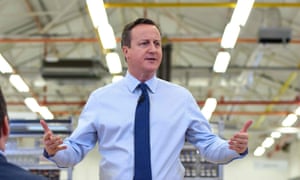Discuss the view that a national minimum wage is beneficial for an economy.
The view that a national minimum wage is beneficial for an economy is widely debated and depends on various factors and perspectives. Let's discuss some of the arguments supporting the benefits of a national minimum wage:
Improved Standard of Living: One of the primary arguments for a national minimum wage is that it helps improve the standard of living for low-wage workers. By setting a floor on wages, it ensures that workers receive a certain level of income deemed necessary for a decent living. This can help reduce poverty and inequality, lifting individuals and their families out of hardship.
Reduced Income Inequality: A national minimum wage can contribute to reducing income inequality within a society. By narrowing the gap between low-wage and higher-wage workers, it promotes a more equitable distribution of income. This can have positive social and economic implications, fostering social cohesion and reducing social disparities.
Increased Consumer Spending: When low-wage workers receive higher wages through a national minimum wage, they tend to have more disposable income. This increased purchasing power can lead to higher consumer spending, stimulating demand in the economy and potentially boosting economic growth.
Reduced Reliance on Welfare Programs: A national minimum wage can help reduce the dependence of low-wage workers on government welfare programs. By providing higher wages, it allows workers to rely less on social assistance, thereby reducing the burden on public finances.
However, it is important to consider the potential challenges and criticisms associated with a national minimum wage:
Potential Job Losses: Critics argue that a higher minimum wage can lead to job losses, particularly in sectors with lower profit margins or where businesses rely heavily on low-wage labor. Employers may respond to increased labor costs by reducing staff, cutting work hours, or slowing down hiring. This can particularly impact small businesses and industries with limited pricing flexibility.
Negative Impact on Small Businesses: Small businesses may face difficulties in adjusting to higher labor costs associated with a national minimum wage. They may struggle to compete with larger firms or face challenges in passing on the increased costs to consumers. This can potentially lead to business closures, reduced job opportunities, or increased prices for goods and services.
Potential for Inflationary Pressure: A significant increase in the minimum wage can potentially lead to higher costs for businesses, which may be passed on to consumers through higher prices. This can contribute to inflationary pressures in the economy, eroding the purchasing power of consumers and potentially offsetting some of the intended benefits of the minimum wage increase.
Regional and Sectoral Variations: National minimum wage policies may not consider regional or sectoral differences in living costs and economic conditions. Setting a uniform minimum wage across the country may not adequately reflect the varying economic realities, potentially leading to unintended consequences in certain regions or industries.
In conclusion, the debate on the benefits of a national minimum wage is complex and multifaceted. While proponents argue that it can improve living standards, reduce income inequality, and stimulate consumer spending, critics highlight concerns over job losses, negative impacts on small businesses, inflationary pressures, and the need for regional and sectoral considerations. The effectiveness and desirability of a national minimum wage depend on careful policy design, taking into account the specific context and economic conditions of the country in question.
Also, when discussing the impact of a national minimum wage, it is important to consider the role of globalization. Here are some additional points to consider:
Global Competitive Pressures: In an increasingly globalized world, countries with higher minimum wages may face challenges in maintaining their competitiveness. Higher labor costs resulting from a national minimum wage can make domestic businesses less competitive compared to firms in countries with lower labor costs. This can potentially lead to job losses, reduced investment, and shifts in production to countries with lower labor costs, impacting domestic industries.
Supply Chain Effects: Globalization has facilitated complex supply chains, with production processes spanning multiple countries. Implementing a national minimum wage may affect the cost structure of these supply chains. If a country's minimum wage is significantly higher than that of its trading partners, it can lead to cost increases in the production of goods and services, potentially impacting the competitiveness of industries reliant on global supply chains.
Migration and Labor Mobility: Globalization has increased labor mobility, allowing workers to seek employment opportunities in different countries. A higher national minimum wage can attract migrant workers seeking better wages, potentially impacting the domestic labor market and employment dynamics. Additionally, businesses may choose to outsource or offshore jobs to countries with lower labor costs to offset the impact of higher wages.
Multinational Corporations: Globalization has facilitated the growth of multinational corporations (MNCs) that operate across borders. MNCs may have operations in countries with different minimum wage levels, allowing them to adjust their labor costs based on local conditions. This can affect the impact of a national minimum wage on these corporations and their employment practices.
Economic Integration and Trade Agreements: Countries engaged in regional economic integration or trade agreements may face considerations regarding the harmonization of labor policies, including minimum wages. Disparities in minimum wage levels between countries within such agreements can lead to concerns about fair competition and potential distortions in trade.
It is important to note that the impact of globalization on the effectiveness and desirability of a national minimum wage can vary depending on the specific circumstances and characteristics of the country. Policymakers need to carefully consider the interplay between national minimum wage policies, global market dynamics, and the potential consequences for domestic industries, employment, and overall economic competitiveness.


